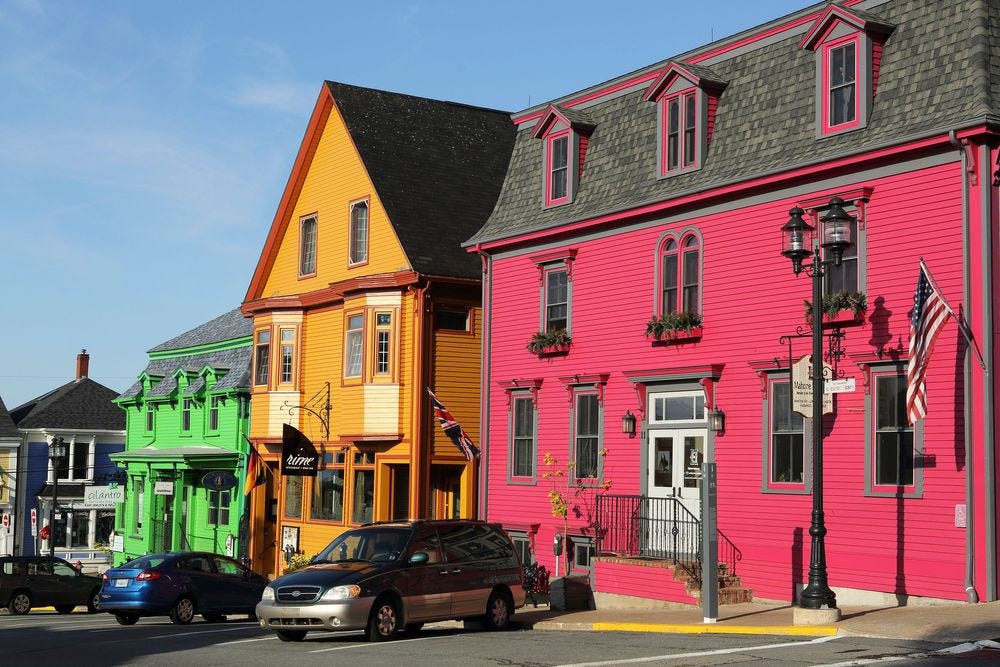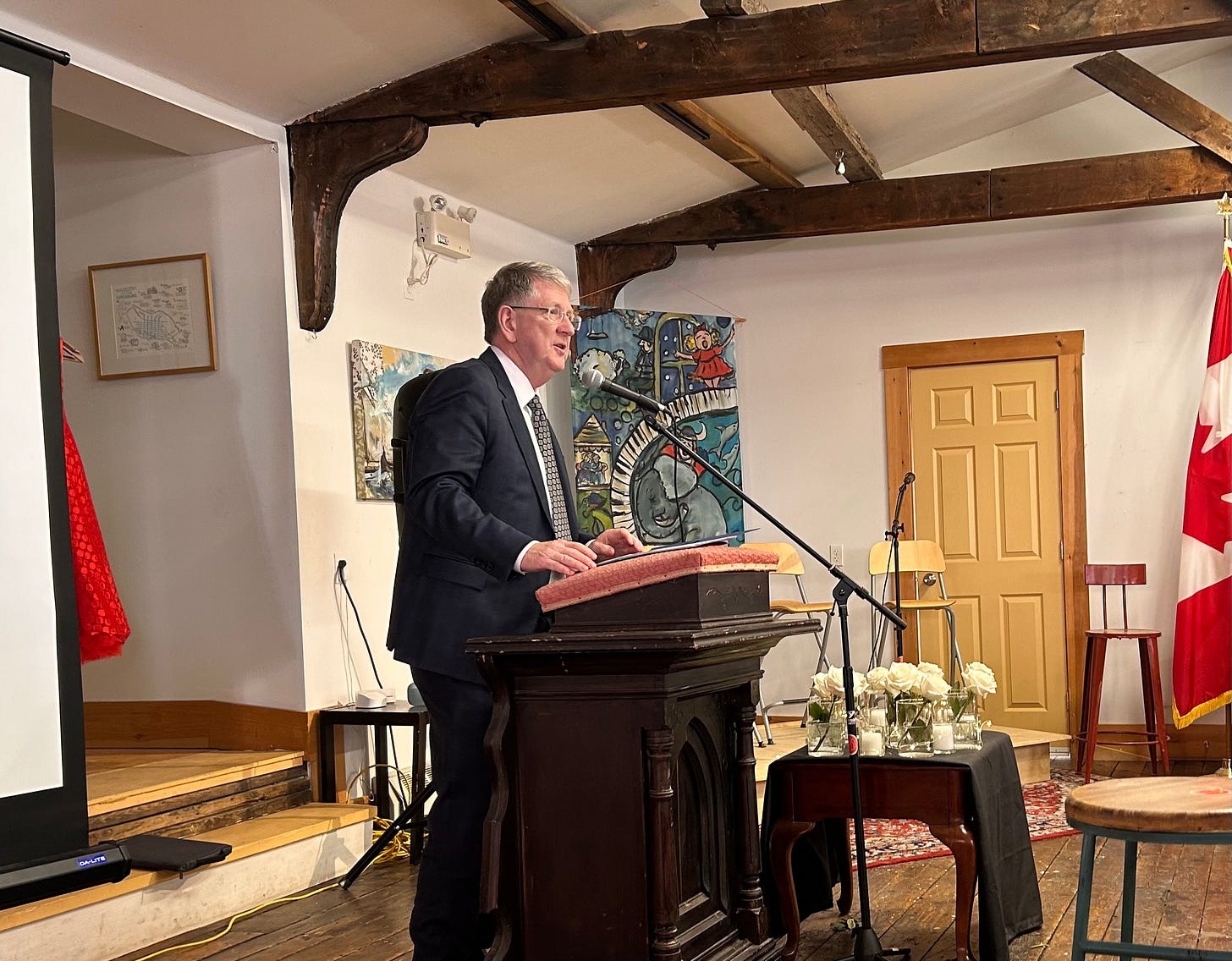Well friends, if you came here for fundraising advice, I think at this point you know you’re at the wrong Substack. I don’t do “how-to” fundraise. There are so many incredible fundraisers in the world providing good advice. I think of my friends
, , Esther Lee, Mallory Erikson, Sarah Goddard, Rickesh Lakhani, Nicole Salmon, and many many more. They are out there and they are giving GREAT advice.So that begs the question, what is this Substack about? A little bit of everything. I am what someone once described as a “greedy reader” and a voracious consumer of political podcasts and news. In university I studied Political Science with a minor in comparative religion. That may give you a sense of how my brain works.
How do politics, religion, and culture intersect with fundraising and philanthropy? As I’ve said before, everything is political—how we choose to give, who we choose to give to, and how money influences the political class and governs our societies. These things are all connected.
Small Town Culture Influences Public Policy
This past weekend, I attended an International Women’s Day event in Lunenburg, Nova Scotia. For those unfamiliar with Nova Scotia, Lunenburg is a small town on the South Shore. It’s picturesque, with a labyrinth of one-way streets that jut into the sea. Even in bleak winter weather, the colorful houses—yellow, orange, blue, green, and purple—stand out. The story goes that fishermen painted their homes to match their vessels, using up excess paint while also helping to identify their houses.
Lunenburg is about an hour outside of Halifax and, unfortunately, is also in close proximity to Bridgewater, the site of the most recent femicide here in Nova Scotia.
More than 75 people gathered at the Lunenburg School of the Arts to honor the memory of the eight women lost to intimate partner violence (IPV) in Nova Scotia and to discuss the urgent need to address the epidemic of gender-based violence in our province.
I’ll be frank—I'm tired of the talk. What I cannot understand is why it is taking so long for us to take meaningful action on this issue. Let’s be clear: women are not safe in their own homes.
The ongoing and enduring stigmatization of victims of gender-based and intimate partner violence (IPV) is a cultural issue. I was not born in Nova Scotia, but I married into a family from the Maritimes, and I know why there is a stigma around speaking up. There are no secrets in a small town. There is no hiding the abuse. Everyone knows there is something wrong, but no one wants to proverbially “rock the boat.” This culture of silencing is what allows abuse to go unfettered. This mentality is making its way to the halls of power in my province and I will not ignore the way it further stigmatizes vulnerable people.
Before attending this event, I presented to the Nova Scotia Liberal Women’s Committee on the connection between the abuse of non-disclosure agreements (NDAs) and gender-based violence with trauma therapist and advocate Kristina Fifield. While these topics may seem separate, the abuse and misuse of NDAs allows perpetrators of abuse to go undetected. The lack of regulation means that that victims and survivors of abuse are often coerced into signing confidentiality agreements in exchange for compensation. Yet, the Premier of Nova Scotia—and many other Canadian politicians—argue that regulating the use of NDAs would take away choice.
This argument is a strawman intended to distract people from the real reason why the abuse of NDAs has proliferated around the world. The world became acutely aware of the abuse of NDAs in 2017, when my friend Zelda Perkins broke her NDA with Harvey Weinstein. Zelda broke her NDA for the same reason that all whistleblowers speak up - she felt compelled to save countless other women from being abused by a system that seeks to silence them. Every single woman that I have ever met who chose to speak up against the patriarchy that seek to hold them back. Countless women and men continue to break their NDAs with abusive employers and perpetrators in order to create safer spaces for us all.
The Well Meaning Men and the Culture of Silence
One of the speakers at the event was the Mass Casualty Commission (MCC) Chair Michael MacDonald. Mr. MacDonald is a Nova Scotian Judge and the proud father of three women and grandfather to three granddaughters. MacDonald spoke to the crowd about how, as someone surrounded by women and girls, he thought he understood the ways women were treated in our province. He shared his shock when he discovered he had no sense of the prolific nature of violence against women and girls in Nova Scotia. He noted that he was not prepared for what he would hear at the MCC and he wanted men in the room, and across the province, to understand how serious this issue is.
MacDonald talked about the myths and tropes that are perpetuated about women and why they don’t report sexualized violence. He reminded the crowd about how women continue to have to fight for justice in a system that is stacked against them. He spoke about Lisa Banfield, the common-law partner of Gabriel Wortman - the man who murdered 22 people in shooting spree on April 18 - 18, 2020 in Nova Scotia. He noted that Ms. Banfield had to testify five (5) times to the RCMP and five (5) times to the Mass Casualty Commission, at great cost to her own safety and mental well-being. He stated that after her testimony at the MCC he had to go to his office, close the door, and cry because he could not believe any human being would be subjected to such violence.
I have included a video of Ms. Banfield’s testimony - please note this is triggering to watch and I urge everyone to take care.
MacDonald showed this video to the audience at the IWD event. The tension in the room was palpable. In light of the recent loss of eight (8) more women and one man to intimate partner violence, it felt essential to note and acknowledge that our culture of silence in Nova Scotia has not changed one bit since the 3,000-page Mass Casualty Commission (MCC) Final Report was issued.
MacDonald called on men in the province of Nova Scotia to open their eyes to the violence being inflicted on women. He pointed out that there is nothing shocking about the recent spate of deaths in our province. This is simply a result of our continued ignorance and unwillingness to confront systems of oppression.
MacDonald stressed that men in all levels of government need to step up. We need men to lead. We need men to be vulnerable. We need men to show up and speak up. We need men to be part of the solution, not part of the problem.
Violence against women is not a women’s issue. Violence against women is a men’s issue.
Silence is Violence
I spend a lot of time in community with people who have been forced to sign NDAs. I sit at tables, drinking coffee with them, listening to how betrayed they feel by the system. I spend time in cars, driving with them to events, traveling to retreats, hearing about the institutional betrayal they experience.
I know what it is like to have someone offer you money to keep their indiscretions a secret. I know what it is like to deal with the Human Rights Commission, human resources professionals, and lawyers, all telling you that signing an NDA is a good idea. They are often well-meaning and well-intentioned—but the road to hell is paved with good intentions.
My friend Kristina Fifield was the closing speaker at the International Women’s Day event, and she offered the following insights into how restoring choice for victims and survivors will help us heal:
“It is important to note that a culture of violence thrives in silence. We must remember that in order to heal, victims and survivors need to know they can speak with friends, with family members, with loved ones. Until we give survivors the ability to choose who they tell their story to, we are perpetuating further harm. No one can fully heal without their voice.”
—Kristina Fifield, Registered Trauma Therapist and Advocate (Nova Scotia)
I wish each and every one of you the ability to use your voice for the things you believe in.
May we remember those we’ve lost and work to change our culture of silence, so that one day, we will not be lighting candles in the names of those lost to intimate partner violence.
We remember:
On March 2, an elderly woman was found dead in a Bridgewater home. Her husband, Andrew Dawson Tanner, has been charged with first-degree murder.
On Jan. 11, Paiyton Pick, 22, was found dead in a home that was set on fire. Her boyfriend, Justin Joseph Benjamin, has been charged with second-degree murder and arson with disregard to human life.
On Jan. 5, Elaine Mosher, 60, was killed by her partner at a home in Mahone Bay.
On Dec. 31, Corelee (Alisha) Smith, 40, was killed alongside her father, Bradford (Coy) Downey, in Halifax by her partner.
On Nov. 7, a 71-year-old Cole Harbour woman was killed by her husband in their home. Police have not released her name.
On Nov. 1, Nicole Murphy, 49, was killed by her partner in their Yarmouth home.
On Oct. 18, Brenda Tatlock-Burke, 59, was killed by her husband, a retired RCMP officer, in their Enfield home.
In solidarity my friends,
Liz






Powerful piece, Liz. I started working on the Solutions Cohort to address femicide, working with US donors who were willing to fund bold innovations on ending IPV and femicide.
Unfortunately, the instability in their own country has delayed progress on this, but reading this pushes me to re-engage those who are willing to finally say enough is enough is no longer enough. Bravo
Wow. This is powerful, Liz. THANK YOU so much for sharing these stories. Living in another country, I wasn't aware of them (and my heart breaks for each one)... though my mind goes to how similar the stats probably are here.
Also, I'm with you in embracing the breadth and depth contained in philanthropy. As I like to say, philanthropy is caring for your fellow humans — which is one of the most human things a human can do — so I hope any human can benefit from my Substack.
Your fellow voracious reader, Cecelia